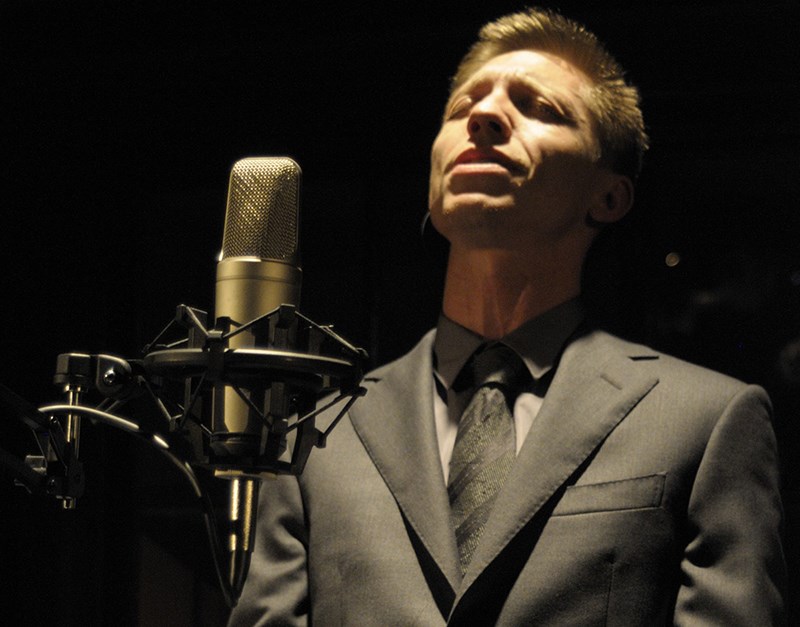If anyone can turn being called a “big mouth” into a good thing, it’s Valentijn Dhaenens.
With just five microphones and his voice, the Belgian theatre artist rather famously stitches together 2,500 years of speeches into BigMouth, his sell-out hit from the 2012 Edinburgh Fringe that uses the words of Socrates to Osama Bin Laden, Martin Luther King to George W. Bush to show how some things, incredibly, never change.
“BigMouth is actually a very personal history of the Western world through speeches,” says Dhaenens, who is making his first trip to Vancouver to perform the show Feb. 11-21 at the York Theatre, presented by The Cultch. “In my opinion, speeches always try to manipulate people so, in return, I manipulate the speeches – I mix up a few speeches and make one speech of them, or use from the same person different fragments of different speeches.”
Between those speeches, the multi-talented performer also sings era-specific songs, using a loop pedal to enhance the effect.
“It’s called I wanted the show to be about the power of what we’re able to do with this small hole in our face,” he laughs.
As a co-founder of SKaGeN, one of Europe’s hottest theatre collectives, Dhaenens is no stranger to creating powerful work for the stage, however BigMouth was the first solo show he had ever attempted.
“When you work with other people, you always have to discuss everything […] and I had an urge to work much more intuitively,” he recalls, “so what I did was I promised myself over the course of a year to read at least one speech a day, without too much of a concept.”
He read upwards of 10 speeches a day and, by the end, had almost 1,000 speeches divided into stacks of war speeches, eulogies, sermons and so on, in the hopes that he would start to notice connections between the widely disparate subjects.
“And that’s actually how it happened,” he continues. “One of the very first speeches I was attracted to was a Goebbels speech at the end of the Second World War called the ‘Total War’ speech. You can still hear it on YouTube, it’s quite famous, and he’s shouting all the time, ‘Wollt ihr den totalen Krieg?’ [Do you want total war?].
It’s very impressive,” he adds, explaining that Goebbels’ rhetoric galvanized the Nazi propaganda movement. “So I had this feeling, because it was at the end of the war and he’s trying to get the women involved […] that if I were to do this speech quite the opposite from the original – very softly spoken and slowly, whispering in the audience’s ears – people would get what he’s actually saying more than if I shouted it.”
A few months later, he came across a D-Day speech by American general George S. Patton and saw some striking similarities.
“They’re trying to do the same thing,” Dhaenens says. “They’re trying to persuade people to go to war, but this Patton guy is so different in his techniques,” says Dhaenens. “He uses very short, simplistic sentences – very racist and aggressive in tone and content – so I made a mix of those two speeches.”
Dhaenens approached every speech thereafter in a similar fashion – rather than trying to impersonate famous speakers or speeches, looking instead to present each oration in a new way to reveal hidden meanings, human hubris, and social subtleties.
“You really get a display of how speeches work in a different way,” he says, “even when they have the same goal.”
• BigMouth runs Feb. 11-21 at the York Theatre (639 Commercial). Tickets $20; tickets.thecultch.com.
Correction: An earlier version of this story listed the wrong venue for the show. We apologize for the error.


